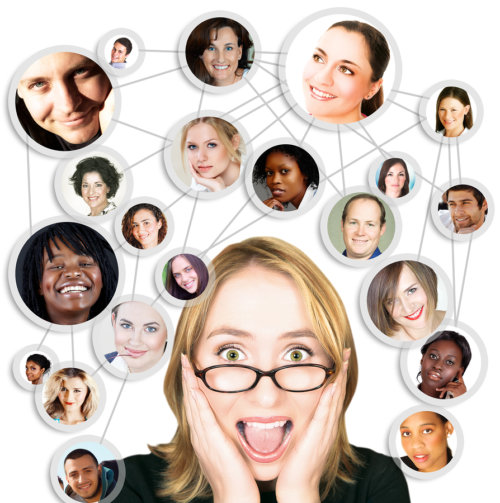The rise of social media is a defining characteristic of the 21st century. Platforms like Facebook, Snapchat, and Instagram are cornerstones of modern life. For many, a life moment hasn’t really happened until it’s pinned and posted.

The growth of these interfaces has created immense wealth for many, in addition to fame for a select few. Social media platforms have altered how we communicate, plan parties, search for jobs, and even say happy birthday. Social media is the first thing we check in the morning and the last thing we look at before bed. It has supplanted the newspaper and touched the corners of our lives that print media never could.
The negative consequences of social media have often been ignored, but this is starting to change. The pernicious effects of social media are being studied at top research universities. In particular, the impact on the human psyche is a topic of interest. How does constantly browsing social media influence the way we think about ourselves? Or the way we think about others? Many of the answers are only starting to take form.
However, what’s indisputable is that constant social media use does have psychological consequences. Below we discuss some positive and negative ways in which social media affects our mental health.
Negative Effects
Feelings of Inadequacy
Platforms like Facebook and Instagram make it easy to keep in touch with friends and acquaintances. Their posts and photos give us insight into their lives. This can make us feel more connected, but it can also leave us feeling inadequate.
Social media’s ability to nurture feelings of inadequacy lies in the illusion it creates. Posted content creates the impression of an idyllic life, with the poster’s less admirable moments obviously left out. Even though we’re aware of this constructed reality, we’re still vulnerable to feeling insufficient.
According to HelpGuide.org, “we’re all aware that other people tend to share just the highlights of their lives, rarely the low points that everyone experiences. But that doesn’t lessen those feelings of envy and dissatisfaction when you’re scrolling through a friend’s airbrushed photos of their tropical beach holiday or reading about their exciting new promotion at work.”
Impaired Human to Human Relationships
Social media is a great way to catch up with friends from high school or send your niece a birthday message. This ease of contact is convenient, but experts warn that it gets in the way of actual human-to-human engagement.
Social media users may become so engrossed with happenings on Facebook and Instagram that they stop working on their actual real-life relationships. This is harmful because digital communication is not a substitute for human-to-human interaction; giving a hug, hearing a laugh, or even shaking someone’s hand provides a sense of comfort that no amount of likes or tags can replace.
“As human beings, it’s so important for us to be able to communicate and forge personal connections with one another,” writes Sabrina Barr for the Independent. “However, it can be hard to do so when we’re glued to rectangular screens, becoming more acquainted with our friends’ digital facades than their real-life personas.”
Feelings of Social Isolation
This may seem counterintuitive at first blush. How could a website that is inherently “social” make someone feel socially isolated? The answer, again, lies not in reality, but in how social media changes our perception of reality.
The effects of social isolation and inadequacy are derived from similar sources; social media puts our lives in stark relief with our friends’ lives. If a person constantly views images of people having fun and being social, this can make them feel left out. Amazingly, this feeling can persist even if they maintain a robust and active social life.
“Not surprisingly, it turned out that the more time people spent on these sites, the more socially isolated they perceived themselves to be. And perceived social isolation is one of the worst things for us, mentally and physically,” writes Alice G. Walton in Forbes.
Self-Absorption
It’s true, social media is a great way to share life moments, but let’s be honest, it can also nurture vanity and self-centeredness. Social media can very easily turn into a competition if we’re not careful. If we see a friend post a picture of themselves at the beach, we may feel compelled to one-up them. If we’re unable to garner the desired attention, we may feel disdainful. This pursuit of affirmation in the form of likes and retweets can quickly become toxic and ego-driven.
Additionally, in visual mediums, like Facebook and Instagram, aesthetics are king. We also see these platforms as the means of presenting ourselves to the world. Couple these facts together, and we end up emphasizing our more superficial aspects.
Positive Effects
The news isn’t all bad. Indeed, social media can have positive impacts on our lives, as well. Although Facebook and Instagram can cause friendships to deteriorate, this isn’t a one-way street. The increased connectivity these platforms afford can also nurture friendships and help us meet new people. No longer are relationships so geographically dependent; we can now easily keep in touch with far afield friends and family. This can reduce feelings of loneliness and social isolation in the long run.
Recently, researchers at Harvard conducted a study on how social media is related to three health-related outcomes: social well-being, positive mental health, and self-rated health. The results were surprising. The researchers found that responsible social media use had a positive association with all three outcomes. It’s important to note that the positive outcomes were the product of moderate, measured social media use.
“In more general terms, these findings suggest that as long as we are mindful users, routine use may not in itself be a problem. Indeed, it could be beneficial,” writes Mesfin Awoke Bekalu, who helped administer the study. The ubiquity of social media is undeniable. Even the most ardent Luddites have a hard time avoiding it. It has become a part of our cultural fabric and how we engage with the world.
Social media’s rise has come with tremendous consequences, as with prior technological advances. At the individual level, its impact on the human psyche is coming into focus, if not yet fully understood. Unbridled use of social media can reduce our self-esteem and trigger feelings of jealousy. The news isn’t all bad though; for example, social media makes connecting with friends and family easier.
Social media’s influence is likely to grow with time, as each generation grows hungrier for likes and retweets, so it’s important to understand how it affects you.



